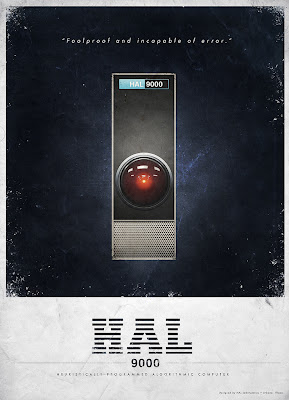In July 2008, the technology writer Nicholas Carr wrote an Atlantic Monthly cover story titled "Is Google Making Us Stupid?" The gist of the article, and much of Carr's writing, including his latest book The Shallows: What the Internet is Doing to Our Brains, is that the web, Google, and online access to information anytime anywhere is rewiring how we think, and not necessarily for the better.
"Over the past few years I’ve had an uncomfortable sense that someone, or something, has been tinkering with my brain, remapping the neural circuitry, reprogramming the memory. My mind isn’t going—so far as I can tell—but it’s changing. I’m not thinking the way I used to think. I can feel it most strongly when I’m reading. Immersing myself in a book or a lengthy article used to be easy. My mind would get caught up in the narrative or the turns of the argument, and I’d spend hours strolling through long stretches of prose. That’s rarely the case anymore. Now my concentration often starts to drift after two or three pages. I get fidgety, lose the thread, begin looking for something else to do. I feel as if I’m always dragging my wayward brain back to the text. The deep reading that used to come naturally has become a struggle."On a recent red-eye flight home from LAX to JFK, I was reminded how wired we've become. No sooner had the flight reached cruising altitude when across the darkened cabin row after row of passengers' faces were illuminated by the LCDs of their iPads. I felt a surge of luddism when I pulled out the hard copy edition of Laura Hillenbrand's Unbroken. Upon landing, out came the iPhones.
How we learn, socialize, and come to understand and know things has changed.
Essayist Tim Kreider in an op-ed titled In Praise of Not Knowing in today's New York Times, has more to say on this topic.
"Instant accessibility leaves us oddly disappointed, bored, endlessly craving more. I’ve often had the experience of reading a science article that purported to explain some question I’d always wondered about, only to find myself getting distracted as soon as I started reading the explanation. Not long ago the Hubble telescope observed that Pluto’s surface is changing rapidly, and noticeably reddening. It’s not a bland white ball of ice, but the color of rust and soot. We’re not likely to learn anything more until the New Horizons spacecraft gets there in 2015. In the meantime, we just get to wonder.
"I find this mysterious and tantalizing. As soon as I began reading possible explanations — ultraviolet light interacting with chemicals, blah blah blah — I started to lose interest. Just knowing that there is an answer is somehow deflating. If some cryptozoologist actually bagged a Yeti and gave it a Latin name, it would just be another animal. An intriguing animal, no doubt, but would it really be any more bizarre or improbable than a giraffe or a giant squid?
"I hope kids are still finding some way, despite Google and Wikipedia, of not knowing things. Learning how to transform mere ignorance into mystery, simple not knowing into wonder, is a useful skill. Because it turns out that the most important things in this life — why the universe is here instead of not, what happens to us when we die, how the people we love really feel about us — are things we’re never going to know."

No comments:
Post a Comment